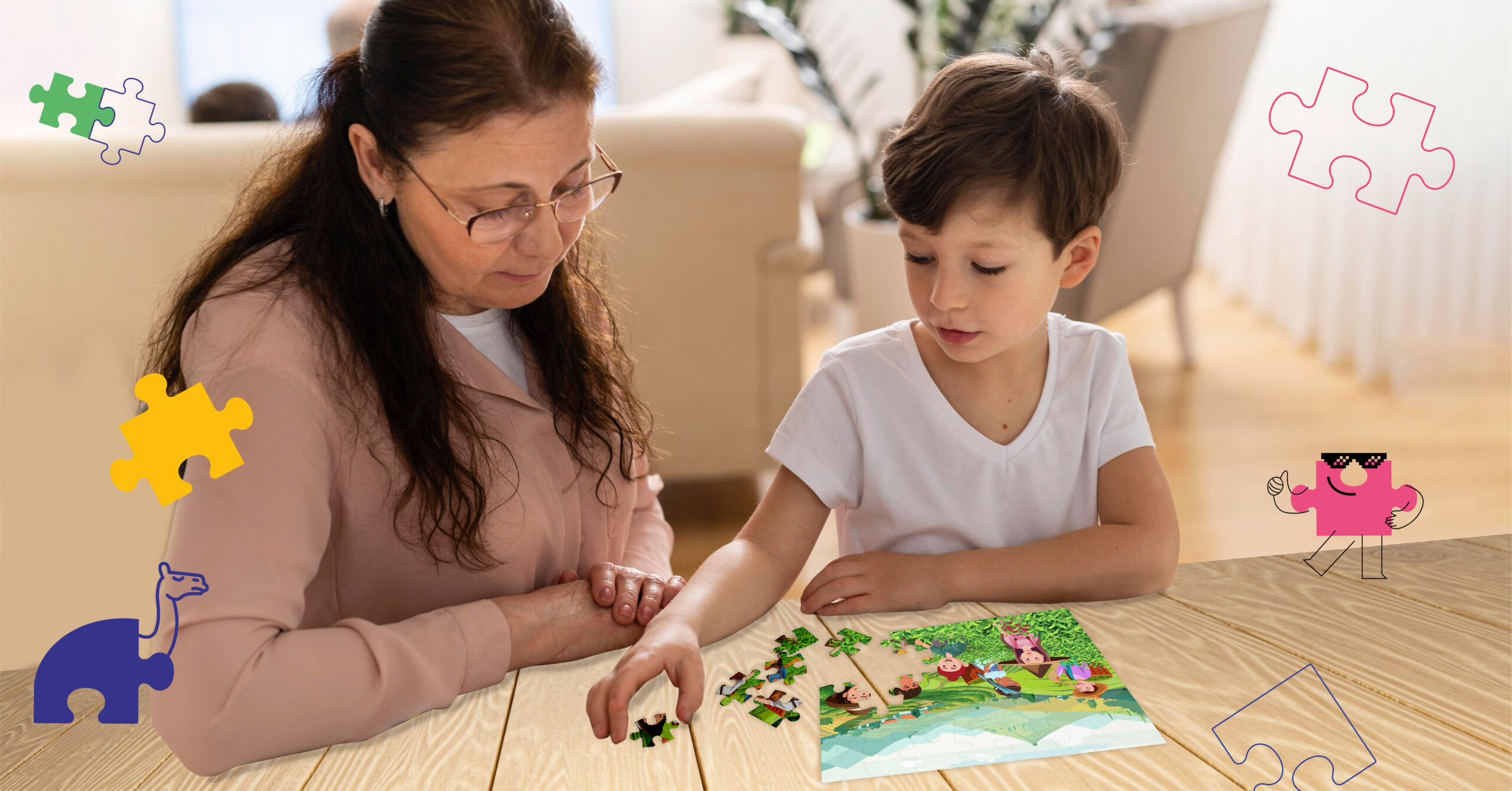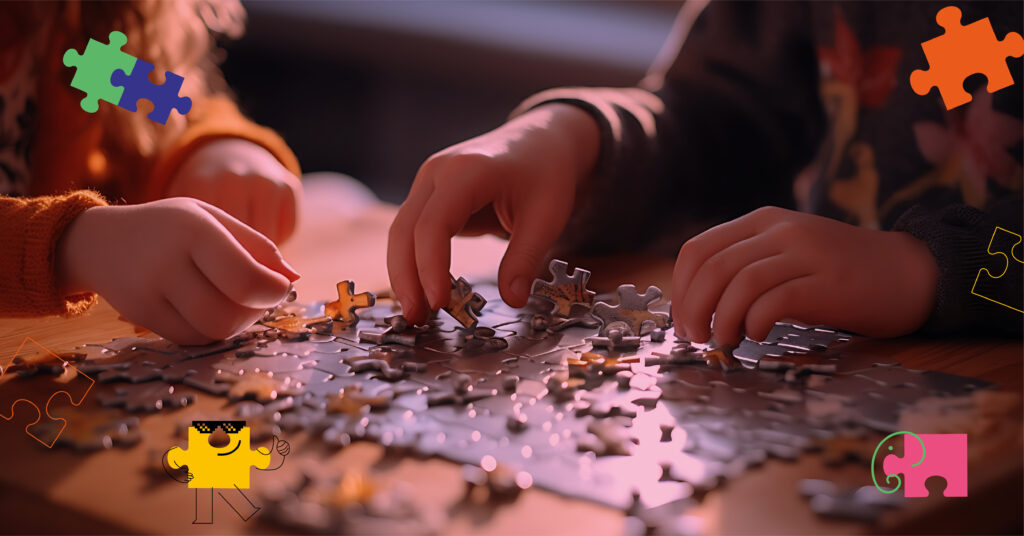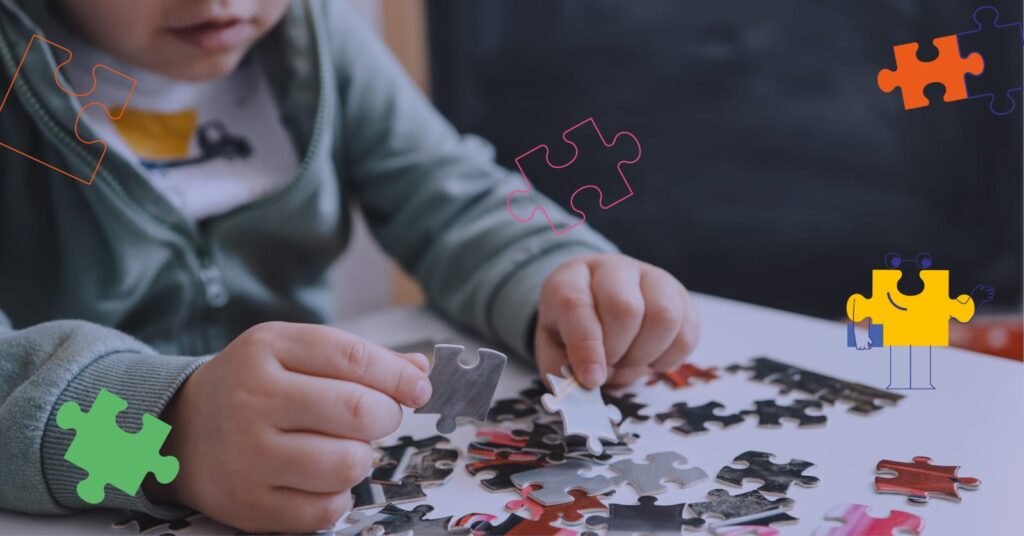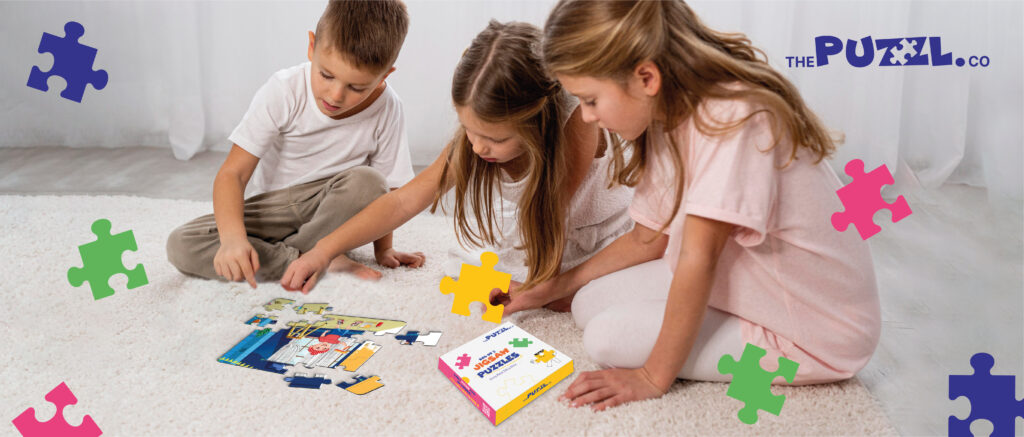Puzzles aren’t just about fun and games – they’re powerful tools for child development! From boosting cognitive skills to promoting social interaction, jigsaw puzzles for kids offer a wealth of benefits for all ages. Let’s explore the many ways in which puzzles foster child development.
Building Cognitive Skills
Puzzles are like mental workouts for kids’ brains, helping them develop essential cognitive skills such as problem-solving, spatial awareness, and logical reasoning. As children manipulate puzzle pieces and figure out how they fit together, they are engaging their brains in critical thinking and problem-solving activities. This helps improve their ability to analyze, strategize, and think creatively – a skill set that will serve them well in school and beyond.
Enhancing Fine Motor Skills
Ever noticed how kids have to carefully grasp and manipulate puzzle pieces to fit them together? That’s because puzzle pieces are great for developing fine motor skills, which are crucial for tasks like writing, drawing, and using tools. As children practice picking up, turning, and placing puzzle pieces, they’re honing their hand-eye coordination, finger dexterity, and precision – all of which are essential for mastering everyday tasks and activities.
Promoting Patience and Persistence
Completing a jigsaw puzzle requires patience and persistence – two important life skills that children can develop through puzzling. As kids encounter challenges and setbacks while working on a puzzle, they learn to persevere and keep trying until they succeed. This resilience not only helps them overcome obstacles in other areas of their lives, such as academics, sports, and personal goals.
Fostering Spatial Awareness
Spatial awareness refers to the ability to understand and navigate the space around us – an essential skill for activities like reading maps, following directions, and participating in sports. Jigsaw puzzles for kids develop spatial awareness by challenging them to visualize and manipulate objects in two and three dimensions. As kids fit puzzle pieces together, they gain a better understanding of shapes, sizes, and spatial relationships, which can enhance their overall spatial intelligence.
Encouraging Social Interaction
Puzzles aren’t just solo activities – they’re also great for promoting social interaction and collaboration among children. Whether working on a puzzle together with siblings, friends, or parents, children learn important social skills such as communication, cooperation, and teamwork. They practice taking turns, sharing ideas, and supporting each other, fostering positive relationships and building social confidence along the way.
Boosting Confidence and Self-esteem
There’s nothing quite like the sense of accomplishment that comes from completing a challenging jigsaw puzzle! As children successfully solve puzzles and see their hard work pay off, they gain a sense of pride, confidence, and self-esteem. This boost in confidence can have far-reaching effects, empowering children to take on new challenges, set higher goals, and believe in their ability to succeed in whatever they put their minds to.
Stimulating Creativity and Imagination
Jigsaw puzzles for kids spark creativity and imagination. As kids engage with colorful and engaging puzzles, they are inspired to think creatively and be engrossed in stories. This imaginative play not only adds an extra layer of fun to puzzling but also encourages children to express themselves, think outside the box, and explore their own unique ideas and perspectives.
Also Read – Power Up Your Child’s Development With Puzzles
So next time you see a puzzle, remember – it’s not just a toy, it’s a powerful tool for fostering your child’s growth and development.



